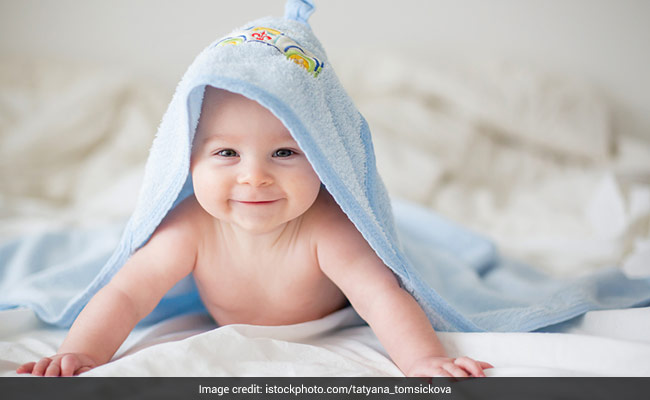All You Need To Know About Your Baby’s First Bath

Bathing your newborn for the first time can make you nervous. However, following expert advice, gaining a better understanding of best practices for bathing newborns and using trusted products developed for babies with safe ingredients can result in an experience that forms a strong bond between the parent and newborn.
Baby’s skin loses moisture faster, making it prone to dryness and irritation
A baby’s skin is up to three times thinner than an adult’s skin with an immature barrier resulting in twice as fast moisture loss. Additionally, baby’s skin also has an evolving pH making it more prone to dryness, irritation, rashes, inflammation and dermatitis. Given the sensitive nature of baby’s skin, the Indian Academy of Pediatrics (IAP) have put in place standardized guidelines to ensure quality pediatric skin care for neonates, infants and children.
First bath should be given 6-24 hours after birth
In the past, it was a common practice for hospitals to bathe newborns immediately after birth. However, IAP recommends that once the baby is stable which is usually between 6-24 hours after birth, a bath can be given.
Choose a baby safe cleanser: With large micelles so it doesn’t penetrate baby’s skin
Today, the market is flooded with a host of baby products which can be an overwhelming experience for parents. It is critical to use products which are trusted by paediatricians and made with ingredients which are safe for babies. Parents should choose products that are gentle yet cleanse effectively, with minimum skin penetration. Baby cleansers should ideally have molecules larger in size as compared to adult cleansers which is safer for babies as it will not penetrate the skin to prevent rashes and skin irritation. Also, ensure that the cleanser should not irritate baby’s skin or eyes. A cleaner should be moisturising with ingredients that are naturally derived such as glycerine or coconut oil which help maintain the baby’s microbiome. It should not affect the acid mantle of the skin’s surface, remove natural moisturizing factor (NMF) or disrupt the barrier function. An all-purpose cleanser that is hypoallergenic and pH-balanced should be considered. Such gentle liquid cleansers usually rinse the skin clean without leaving any residue and have no added parabens, dyes, sulphates and phthalates.
Day 1 bathing regime: Keep bath times short & check the temperature of the bathwater
During the first bath, the umbilical cord should be cleaned with lukewarm water and kept dry and clean. WHO recommends that nothing should be applied on the cord stump to prevent infection.
The bath should always be given in a warm room. The bath duration should be short and should not exceed 5-10 minutes. During winter, the baby can be bathed twice or three times a week.
Tub bath is recommended as a safer and comfortable option than sponge bathing as it results in less heat loss in the baby. Use of bubble baths and bath additives should be avoided as these may increase the skin pH and cause irritation.
Haircare basics
The baby’s hair should be first washed after the cord falls. The hair should be washed gently to avoid the soap irritating the baby’s eyes. It is also recommended that hair wash be given not more than twice a week.
Protecting baby’s skin from the start
Baby’s skin constantly loses moisture making it prone to dryness even though it doesn’t look dry. It is important to apply a moisturizer even if you don’t see obvious signs of dryness. After the baby is bathed, gently pat the baby dry and apply moisturizer. This is usually referred to as the ‘soak and seal’ method.
Parents should opt for moisturizers that are clinically tested and designed for newborn babies to provide day long protection. A gentle baby lotion with ingredients like coconut oil can be applied all over the body. Using a cream that is dermatologist tested for the face area is vital, as it has a thicker consistency and will gently nourish the delicate skin, sealing the moisture and keeping the skin hydrated.
By following these simple tips, new parents can ensure that their little ones are healthy, the bathing process is safe and most importantly special.
(Dr R. Kishore Kumar, Consultant Neonatologist, Founder – Cloudnine Hospitals India and Healthcare Delivery)
Disclaimer: The opinions expressed within this article are the personal opinions of the author. NDTV is not responsible for the accuracy, completeness, suitability, or validity of any information in this article. All information is provided on an as-is basis. The information, facts, or opinions appearing in the article do not reflect the views of NDTV and NDTV does not assume any responsibility or liability for the same.
